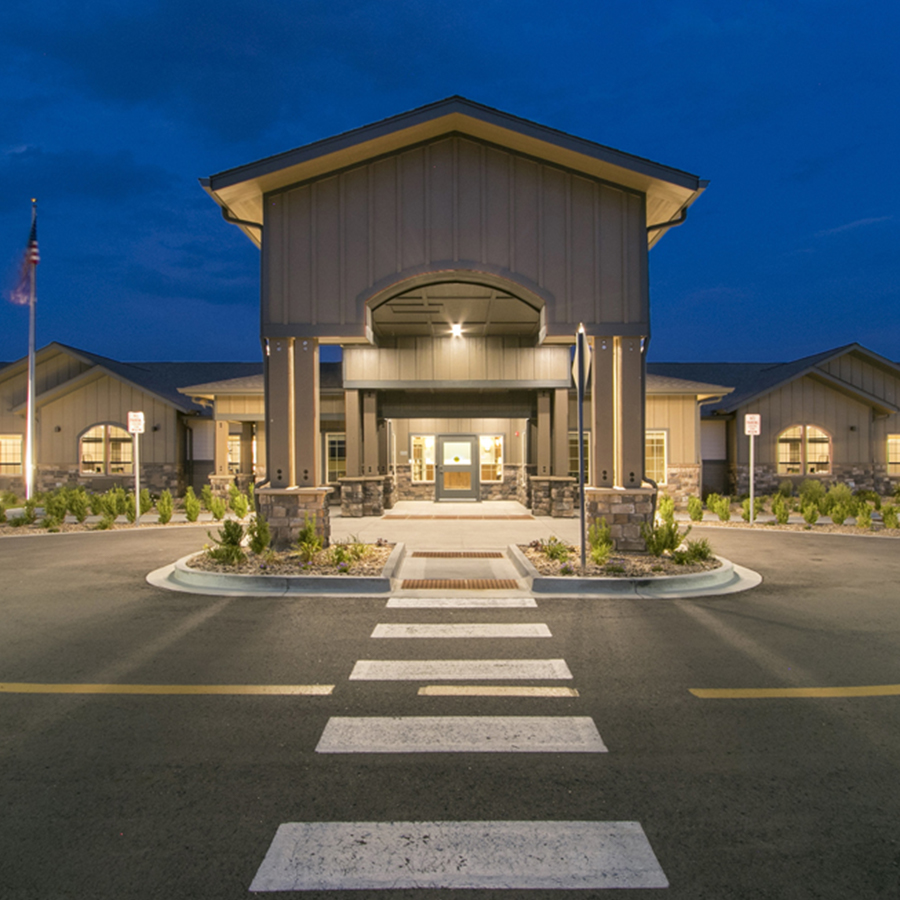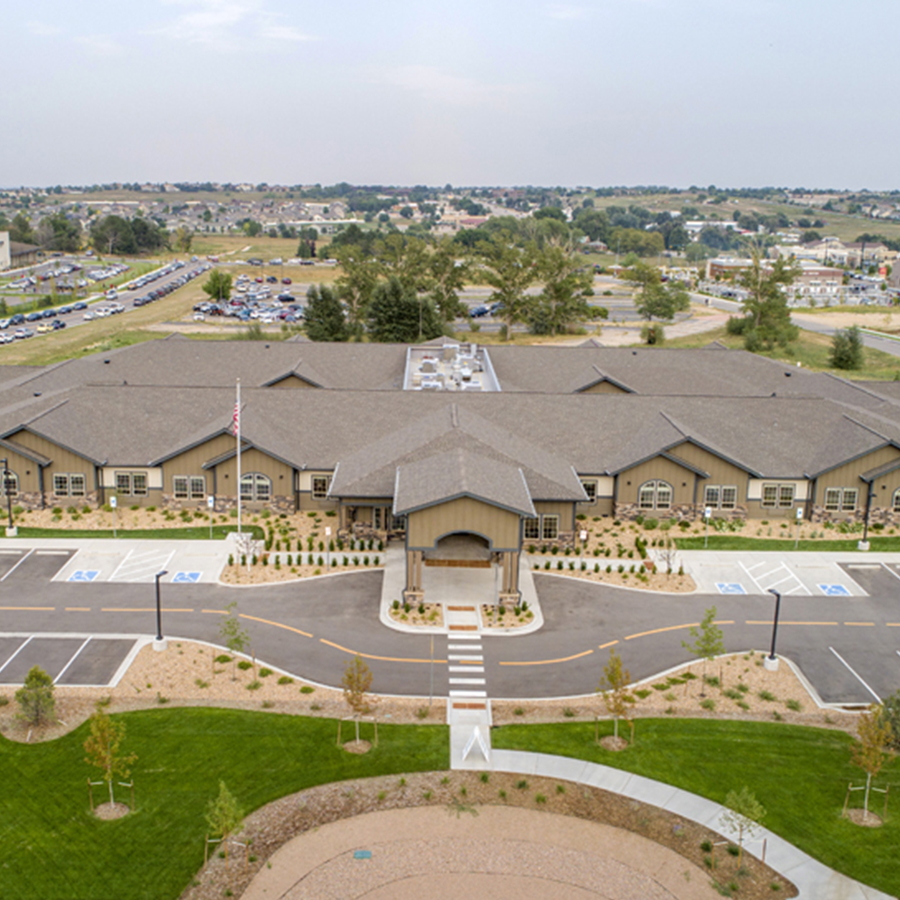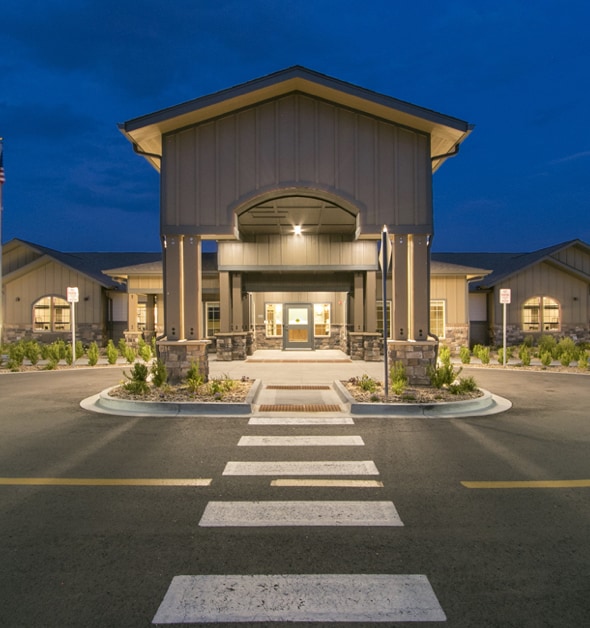Caring for a senior loved one living with dementia or significant memory loss is both a challenging and heartfelt responsibility. You do your best to ensure their comfort, safety, and well-being. But as dementia progresses, their needs may outgrow what can be managed at home. This is where memory care can provide specialized support for daily living activities, behavioral changes, and safety concerns.
How Dementia Impacts a Senior’s Ability to Care for Themselves
Dementia is a progressive condition that impacts memory, cognitive abilities, and behavior. For seniors, these changes can profoundly influence everyday tasks.
- Difficulty with basic activities like managing medication, cooking meals, or tending to hygiene often arises as memory declines.
- Confusion and forgetfulness can lead to skipped meals, unpaid bills, or uncertainty during outings—even in familiar spaces.
- Behavioral changes, such as agitation or withdrawal, become more pronounced, making social interactions and relationships more challenging.
While minor lapses might initially seem manageable, the cumulative effect poses a genuine risk to a senior’s safety, health, and quality of life.
What Is Memory Care?
Memory care is a specialized type of long-term care designed for individuals living with Alzheimer’s, dementia, or other forms of memory loss. These communities offer professional staff, tailored environments, and purposeful services to meet the unique needs associated with cognitive decline.
Types of Residents
Memory care residents range from those living with the early stages of dementia to those experiencing more advanced cognitive and physical challenges. However, everyday needs include support with daily activities, personal care, and emotional well-being.
Services & Amenities
Memory care communities provide:
- 24/7 supervision and security to ensure residents’ safety at all times.
- Tailored care plans that monitor health conditions and medications.
- Structured activities are designed to stimulate cognitive function and enhance engagement.
- Comfortable and navigable environments to reduce confusion and agitation and create a feeling of familiarity.
Benefits of Memory Care
By addressing both health and emotional care, memory care goes beyond the necessities to create a holistic support environment for senior residents. These benefits include:
- Enhanced safety through secure, dementia-friendly spaces.
- Professional care offers a better balance of support and independence.
- Enrichment programs that help residents maintain dignity and a sense of purpose.
How to Know When Memory Care Is Needed
Recognizing when memory care is necessary involves evaluating your loved one’s daily life, behavior, and safety. The following are key indicators.
1. Challenges with Daily Living
Is your loved one struggling to manage basic self-care? If you’ve noticed unkempt hygiene, skipped meals, or difficulty maintaining their living space, these can signal the need for structured assistance.
2. Behavioral Changes
Behavioral shifts are familiar with dementia but can escalate over time. Look for signs of:
- Increased forgetfulness that impacts daily life.
- Agitation, mood swings, or withdrawal from social activities.
- Confusion about time, place, or familiar routines.
Such changes make it harder for seniors to thrive in traditional living environments, even with family support.
3. Safety Concerns
Seniors with memory loss are at greater risk for accidents, injuries, and wandering. Frequent incidents such as leaving stoves on, falling, or becoming disoriented outside the home indicate the need for round-the-clock attention in memory care communities.
4. Caregiver Burnout
Providing care takes a tremendous emotional and physical toll on family members. If you’re feeling:
- Overwhelmed and constantly stressed
- Physically or emotionally exhausted from caregiving duties
- Unable to balance caregiving with other responsibilities, such as work or personal health
Then, it’s time to consider memory care. A dedicated care team ensures those responsibilities are shared, allowing you to focus on family time without the weight of constant caregiving.
5. Other Considerations
Beyond immediate concerns, planning is critical:
- Advancing Dementia Stages: Proactively choosing memory care before a crisis ensures a smoother transition.
- Housing Environments: Home layouts that no longer meet your loved one’s needs (e.g., steep stairs) may necessitate changes to living arrangements.
The Benefits of Moving Into Memory Care Early

Transitioning into a memory care community before urgent needs arise has substantial advantages:
- Ease Adjustment: Moving during the early stages allows individuals living with dementia to acclimate to their new surroundings with less confusion.
- Proactive Care: Early intervention enhances cognitive stimulation and slows the progression of symptoms through tailored programs.
- Reduces Caregiver Stress: Family members gain peace of mind knowing their loved one is in professional, compassionate hands.
- Builds Community: Early integration helps create a stable routine and fosters friendships within the memory care environment, significantly boosting emotional well-being.
Supporting the Journey to Better Care
Deciding when to transition your loved one into memory care is never easy. However, recognizing the signs early and understanding the benefits of a professional support system can enhance their quality of life and yours as a caregiver. Addressing their evolving needs in a memory care community ensures safety, dignity, and engagement at every stage of their journey.
At High Plains Crossing, we’ve designed our memory care neighborhood to provide compassionate, personalized support for those living with Alzheimer’s disease and dementia. Contact us today to book a tour and see how our community can support your loved one.
















